2020

WKC’s Director to participate in an event “Information Dissemination During a Global Pandemic: Experiences from the WHO” hosted by UNU
On 26 August 2020, Dr Sarah Barber, Director of the WHO Centre for Health Development (WHO Kobe Centre, WKC) will speak at a virtual conversation event “Information Dissemination During a Global Pandemic: Experiences from the WHO”, hosted by the United Nations University (UNU).
The ongoing COVID-19 pandemic has transfixed global attention in 2020. Media coverage on the topic has penetrated every aspect of daily life, serving the public with overwhelming amounts of information. This is further complicated by misinformation and the near-daily emergence of new facts on the virus and implications. All of this has led to a depreciation of public trust in information, frustrating efforts to minimize infections while time is bought for the development of a vaccine. How can the right information be effectively disseminated? How can the public discern factually accurate information? How can misunderstandings, mistakes, and developments be communicated without inviting controversy?
UNU Rector David M. Malone will join Dr Barber to discuss how the World Health Organization (WHO) has sought to provide reliable information to the public and blunt the impact of an infodemic. This event will be held via Zoom Webinar at 18:30 (JST).
For more details and registration, please visit the UNU’s event page

WKC’s Silver Jubilee: Recognising 25 years Advancing Health Development
WHO’s Centre for Health Development in Kobe (WKC) is marking 25 years of advancing health development since its inception on 22 August 1995.
The idea of creating a research centre in Kobe, Japan was first proposed to WHO by the Governor of Hyogo Prefecture and the Mayor of Kobe City in 1990, as a contribution to international health, through the generous support of the Kobe Group[1].
As an outposted office of WHO’s Headquarters, WKC was to conduct global research which would demonstrate the place of the health system in society and investigate the ways that health improvements contribute to increased economic and social productivity. This vision is the foundation of WKC’s research today on Universal Health Coverage.
The Centre was established in the aftermath of the Great Hanshin-Awaji Earthquake. It is uniquely positioned to contribute to the health systems response to health emergency and disaster risk preparedness and advancing universal health coverage (UHC) in the context of population ageing, while playing a key role in sharing lessons from Kobe, Hyogo Prefecture to other countries facing similar challenges. The Centre is located in Kobe, Hyogo in Japan, and its activities benefit the local community.
Over the years, the Centre has also been acclaimed for its work on urbanization, mental health, women’s health and health promotion and noncommunicable disease prevention and control. More recently, WKC has worked with local and international researchers and institutions to create new understanding of sustainable financing in the context of UHC, service delivery models and social innovations, and metrics and measurement in monitoring the progressive realization of UHC.
WKC’s establishment in Kobe has made the city a fixture on the global public health stage, hosting meetings and multidisciplinary discussions of global impact over the years. The Centre also contributes to the local community through partnerships with universities in the Kansai area, dissemination of research results in local WKC fora, participation in local technical committees, and more recently, through disseminating information to professionals and the public about COVID-19.
The work of WKC in Kobe would not have been possible without the sustained support over 25 years of the Kobe group and the Hyogo and Kobe communities, for which WHO and the Centre are sincerely grateful. WKC looks forward to furthering its work with partners across the Kansai region of Japan to fulfil both the global health mandate and the needs of the local community.
[1] Hyogo Prefecture, Kobe City, Kobe Steel and the Kobe Chamber of Commerce and Industry
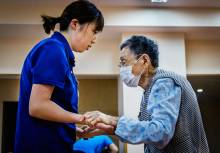
WKC contributes book chapter in new reference book on global health
WKC’s Director, Dr Sarah L. Barber and technical officer, Paul Ong, collaborated with Zee A. Han of WHO’s Department of Maternal, Child, Adolescent Health and Ageing and Health in Geneva to produce a chapter on “Long-term Care in Ageing Populations” in the Handbook of Global Health published by Springer in July 2020.
Public health successes have led to global population ageing. Many countries rely on household members and the community to provide long-term care (LTC) to help people live independently and safely when they can no longer routinely care for themselves. However, as populations age, the supply of informal caregivers is declining. Governments are playing a larger role in organizing and funding formal LTC services and institutions yet financing this has posed challenges.
The authors conclude that even with the expanded role of governments in LTC, households, communities and skilled care providers are needed to assist with LTC. More research is required on how to improve recruitment of LTC workers, incentivise informal care givers, and expand coverage to ensure access to quality care for the whole population without financial hardship for older persons and their families.
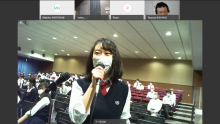
WKC gives first online lecture to high school students
The COVID-19 pandemic has impacted life around the world, but has not stopped the WHO Centre for Health Development from engaging with local communities through online lectures in line with WHO's guidance to staff for controlling the spread of the disease.
On Thursday, 18 June 2020, Dr Ryoma Kayano presented to 160 2nd and 3rd year students from Fukiai High School in Kobe on WHO, global health and COVID-19. He explained the current situation of the pandemic and reminded the students of the importance of continuing to follow the basic prevention measures, such as handwashing, respiratory hygiene, physical distancing, frequent cleaning of surfaces, and staying at home if they feel sick.
The students asked the role of local health security in global health security, whether developed countries should focus on their own second wave prevention measures or assist developing countries in controlling the pandemic; and what skills are needed for a career with WHO.
From their feedback, the students gained a better understanding of WHO’s role in providing guidance to countries, and how to protect themselves from COVID-19 infection.
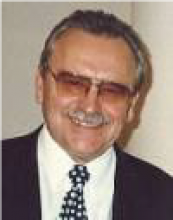
WKC mourns the passing of its first Director
WKC is sad to learn of the passing of its first Director, Dr Andrzej Wojtczak. Formerly the Deputy Minister of Health in Poland, Dr Wojtczak was appointed as Director of WKC in February 1996. He was instrumental in setting up the Centre, working from a room in Kobe Port Island’s Portopia Hotel to employ staff members.
During his Directorship of WKC, Dr Wojtczak established a strong foundation for the new Centre that has matured into a key part of WHO today. He is remembered by staff who worked with him as having tireless energy. He helped to increase the profile of WKC and established relationships with the local academic community. Many of the initiatives that he developed have had lasting impact as they continue to inform the work of the Centre as well as of WHO and countries.
Dr Wojtczak will be remembered as a global health leader who brought wisdom and lessons from Japan onto a world stage, and as a warmhearted person who always encouraged staff to move forward with confidence. We treasure the contributions he made to the Centre’s work, its staff and to Japan.
We extend our heartfelt condolences to his wife and family at this difficult time.
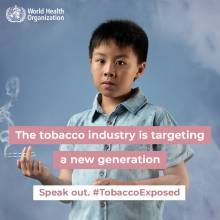
World No Tobacco Day 2019 Message of Dr Sarah Barber, Director of the WHO Centre for Health Development (WHO Kobe Centre)
On 31 May each year, the World Health Organization and its partners celebrate World No Tobacco Day to raise awareness that tobacco use and exposure to second-hand smoke are harmful, deadly, but completely preventable causes of death and disease. This year focuses on the threat of tobacco on lung health for everyone – not just smokers.
Tobacco smoking is the most common cause of lung cancer, resulting in about 1.2 million lung cancer deaths globally every year. Smokers are 22 times more likely to develop lung cancer than non-smokers, and twice as likely to develop TB. More than 20% of new TB cases around the world may be attributable to tobacco.
Tobacco smoke contributes to indoor air pollution. Smoke from the burning end of a cigarette, as well as exhaled smoke, is known as second-hand smoke. Non-smokers who breathe in this smoke risk getting lung cancer, chronic obstructive pulmonary disease, tuberculosis and asthma. Smokers’ children suffer reduced lung function which can affect them in adulthood through chronic respiratory disorders.
Just a single breath of tobacco smoke is enough to start damaging the lungs. Inhaling tobacco smoke paralyses the structures in the airways that clear mucus and dirt, allowing toxins in the smoke to enter the lungs more easily. In Japan, where around 18% of the population smoke, around 15 000 people are killed every year from second-hand smoke.
But it is never too late to quit smoking. Lung function improves within just two weeks of quitting tobacco use.
Japan recently tightened up its indoor smoking regulations. From July 2019, smoking will be banned indoors in schools, hospitals, government and children’s facilities. Several municipalities such as Tokyo, Chiba City, Shizuoka Prefecture and Hokkaido are implementing tougher smoke-free measures to protect their citizens. Increasingly, businesses are choosing to promote health and not tobacco by banning smoking in their workplaces and helping workers to quit smoking.
These are important steps towards protecting people from harmful second-hand smoke – but they do not go far enough. Around 55% of smaller bars and restaurants in Japan are exempt because of their size. This means that customers, families and workers will still be exposed to tobacco smoke. Designated smoking rooms, which are ineffective in protecting people from second-hand smoke, will still be allowed in public spaces such as workplaces, hotels and trains.
Japan is one of the fastest growing markets for e-cigarettes and heated tobacco products (HTPs). WHO recommends that HTPs should be regulated in the same manner as other tobacco products, and that bystanders be protected from exposure to second-hand emissions from HTPs and e-cigarettes.
Japan will soon be showcasing its culture and hospitality at the 2019 Rugby World Cup. Many of the nations playing have introduced indoor smoke-free laws which have been good for health and good for business. Research has found that indoor smoking bans have either a positive or no effect on business in bars and restaurants.
Japan has proven itself to be a global leader, particularly in its progress towards universal health coverage to ensure that all its citizens can access quality health care. The 2019 Rugby World Cup and the 2020 Olympics are golden opportunities for Japan to expand and accelerate its tobacco-free laws. Implementing and enforcing the most effective tobacco control policies and laws is critical for lung health of all people - not just smokers.
WHO Kobe Centre (WKC) contributes to COVID-19 prevention and control
WKC was established nearly 25 years ago with strong financial and material support and collaboration from the Kobe Group.[1] It functions as a department of WHO Headquarters, and as the only World Health Organization entity in Japan, it has both a global and a local mandate.
Since the start of the global outbreak of COVID-19, our contributions to the community in Kobe and Hyogo prefecture have focused on communicating and disseminating the latest technical information and public guidance. This is a core part of our local engagement mandate to raise awareness and advocate for the health of all citizens.
WKC’s first and most critical actions have focused on translating the latest technical information and public guidance into Japanese, working closely with government officials of Kobe City and Hyogo prefecture.
So far, we have translated over 40 WHO guidance documents which are disseminated on our website and through social media. WKC continues to translate WHO’s Disease Outbreak News for Kansai regional officials, and our Technical Officer, Dr. Ryoma Kayano, gives weekly updates to professionals in Kobe City and Hyogo Prefecture.
WKC is using digital media to disseminate key messages on COVID-19 in Japanese as widely as possible. The Centre is collaborating with the UN Information Centre and other UN agencies in Japan to translate and amplify social media messaging and has created a special page on WKC’s Japanese website. Here the public can find general information, government officials and health care workers can access technical guidance and an explanation about how to read the WHO daily situation report.
In solidarity with the health workers and citizens of Kobe
As part of the Kobe community, in April, WKC supported Kobe City’s “blue light” tribute to frontline health workers and donated over 1000 masks to the city. WKC’s Director, Dr Sarah Barber, wrote a letter of support to the city, emphasizing 4 Be’s: Be Safe, Be Smart, Be Kind, Be Kobe.
The media is a critical stakeholder in reporting accurate information about COVID-19 and how to stay healthy. We contributed to the Kobe Newspaper’s special series on COVID-19 and conducted interviews to share key health messages. Technical staff have also provided information on proper handwashing to the media.
The pandemic has shown that COVID-19 respects no borders. The best defense is preparedness, investing in strong health systems and primary health care. WKC stands with the people of Kobe and Japan. Together we can overcome this health threat.
[1] Hyogo Prefecture, Kobe City, the Kobe Chamber of Commerce and Kobe Steel
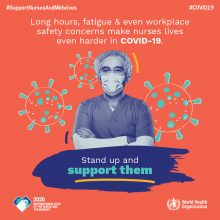
World Health Day 2020 - Message from the Director of WKC
This year, World Health Day on 7 April is dedicated to the critical role that nurses and midwives play in keeping the world healthy. It takes place as the world is grappling with the COVID-19 pandemic. Nurses and other health workers are at the forefront of the response, putting their own lives at risk as they provide high quality support and care. Without nurses, there would be no response.
This year is also the bicentenary of the birth of Florence Nightingale, who pioneered modern nursing. Her leadership emphasised sanitation, good hygiene and hand washing to prevent infectious diseases. This link, made less than 200 years ago, is still our first defence against COVID-19. Today we pay tribute to Florence Nightingale, and all nurses and midwives everywhere. They are the largest component of the health workforce, and backbone of any health system.
A strong nursing workforce is vital to achieve national and global targets for Universal Health Coverage (UHC), emergency preparedness and response, and the delivery of people-centred care. Having enough well trained, regulated and supported nurses and midwives can ensure that everyone, everywhere gets the healthcare they need.
Today, the WHO is releasing the first global report on nursing, The State of the World’s Nursing 2020. WHO and its partners urge investment in a massive acceleration of nursing education, jobs and leadership to ensure nurses get the support they need to keep the world healthy.
COVID-19 clearly demonstrates the importance and value of nurses to society. Let’s celebrate them and thank them for their service.
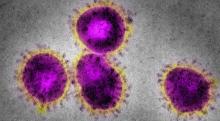
WKC's new webpage with WHO official information on COVID-19 in Japanese
Recognizing the importance of timely and accurate information in the current situation, and in support of local emergency response efforts, WKC has created a special webpage to provide WHO official information on COVID-19 translated into the Japanese language, including general information for the public, technical guidance for government officials and health care workers, and an explanation of how to read the WHO daily situation report. The new webpage can be accessed from the following URL: https://extranet.who.int/kobe_centre/ja/news/COVID19_specialpage
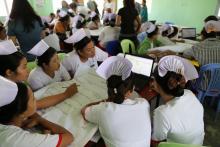
Using research data to improve health system responsiveness to older people's needs, Myanmar, 16-17 December 2019
Findings from research on the health of older people in Myanmar were presented to local stakeholders and used to conduct a workshop on data-driven practice for primary health care workers in a rural township in Myanmar last month. Preliminary findings from this research had been recently presented at the 34th Congress of Japan Association for International Health.
WKC and the Japan Agency for Medical Research and Development (AMED) co-funds research in Myanmar. It builds on the experiences of the Japan Gerontological Evaluation Study (JAGES) to improve data collection on the health of older people and its determinants through interviews with older people, and use that data to improve the health system’s responsiveness to their needs. Importantly, this research has a strong emphasis on the translation of research evidence into policy and practice.

On 16-17 December 2019, the research team organized two events to disseminate their findings in Myanmar. On the first day, a meeting was held in Yangon to have technical discussions about the research methods, findings and implications with stakeholders. It was attended by about 50 participants, including researchers from Myanmar, Malaysia and Japan, AMED, Japan International Cooperation Agency, HelpAge International and WHO.
On the second day, a workshop was organized at a rural health center in Hlaingtharya Township. The objective was to train local primary health care workers on the use of the research data to inform their practice. The workshop utilized data visualization techniques to facilitate understanding of the survey results, which was a key lesson learned from JAGES. About 40 primary health care workers, including the Township Medical Officer and Health Officer, Public Health Supervisor, Lady Health Visitors and midwives, participated in the workshop. They actively interpreted the recently collected data and brainstormed possible interventions that would be appropriate in their local context to promote health and healthcare access for older people.


